Our Queerest Century: A curated timeline
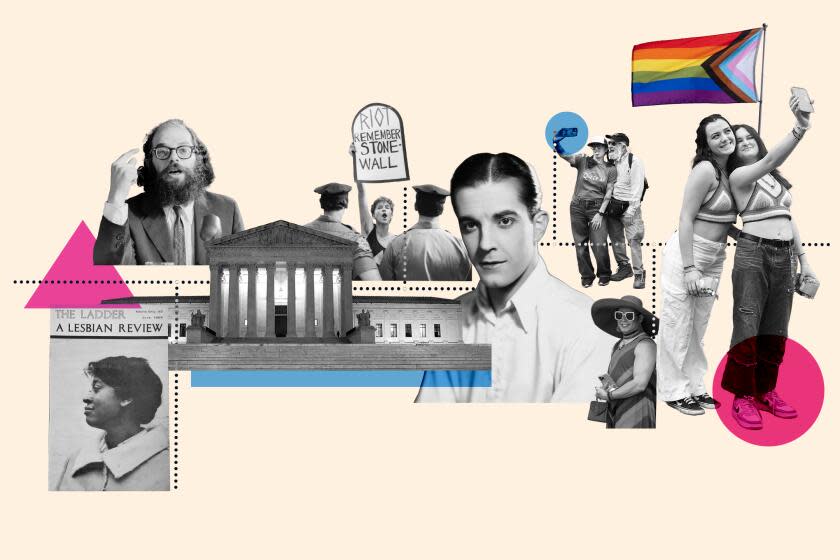
Over the past 100 years, LGBTQ+ Americans have forged a path through history — leaving an indelible mark on our culture and country.
Through their creativity, aesthetic and penchant for pushing boundaries, they have led the way in an array of fields, from arts and entertainment to democracy and the law. That they have done so often at great peril, in the face of bigotry, makes their contributions all the more impressive — and not so easily erased.
The following is a curated timeline inspired by Our Queerest Century.
1924: Henry Gerber founds the Society for Human Rights, credited as the first gay rights organization in the U.S., based on similar organizations in pre-Nazi Germany.
1941: The U.S. enters World War II. Huge numbers of men and women, including service members living in largely same-sex quarters, are exposed to queer people, queer communities and pockets of queer acceptance for the first time.
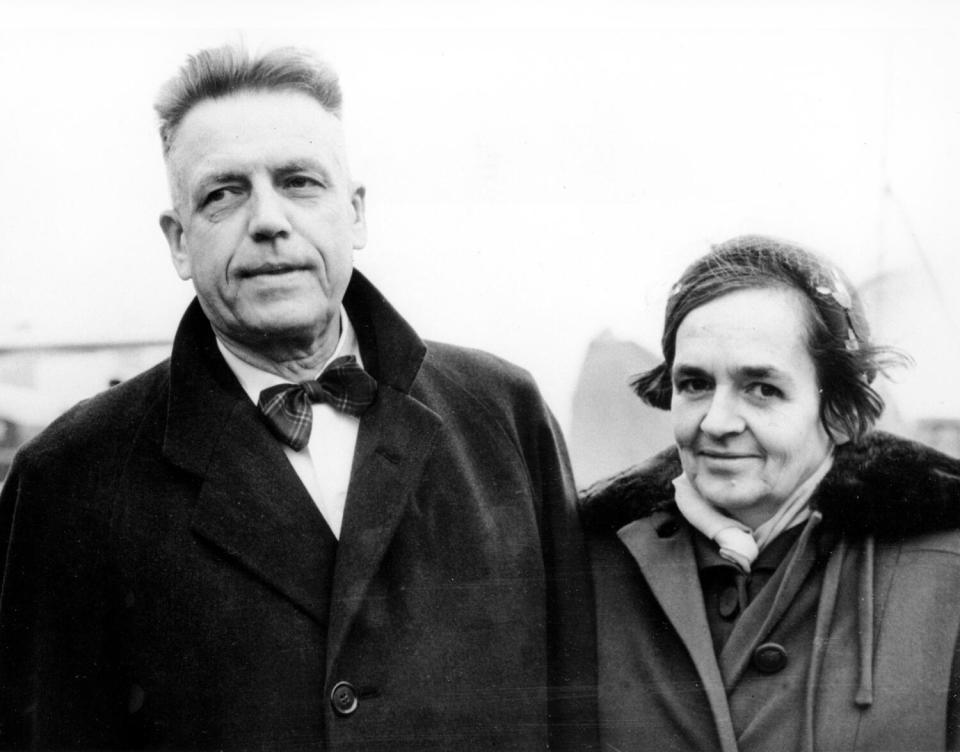
1948: Alfred Kinsey releases "Sexual Behavior in the Human Male," changing the national dialogue around sex.
1950: The Mattachine Society, an early gay rights organization, is founded in Los Angeles.
1955: The Daughters of Bilitis, an early lesbian rights organization, is founded in San Francisco.
1956: Allen Ginsberg publishes "Howl," and along with other queer Beat writers helps change how a generation of young Americans views the world.
1958: The U.S. Supreme Court extends free speech protections to the gay press in the case One, Inc. vs. Olesen, sparked by One Magazine’s challenge to government censorship.
1963: Bayard Rustin helps the Rev. Martin Luther King Jr. organize the March on Washington, which culminated with King’s “I Have a Dream” speech and spurred landmark civil rights legislation — including the Civil Rights Act of 1964.
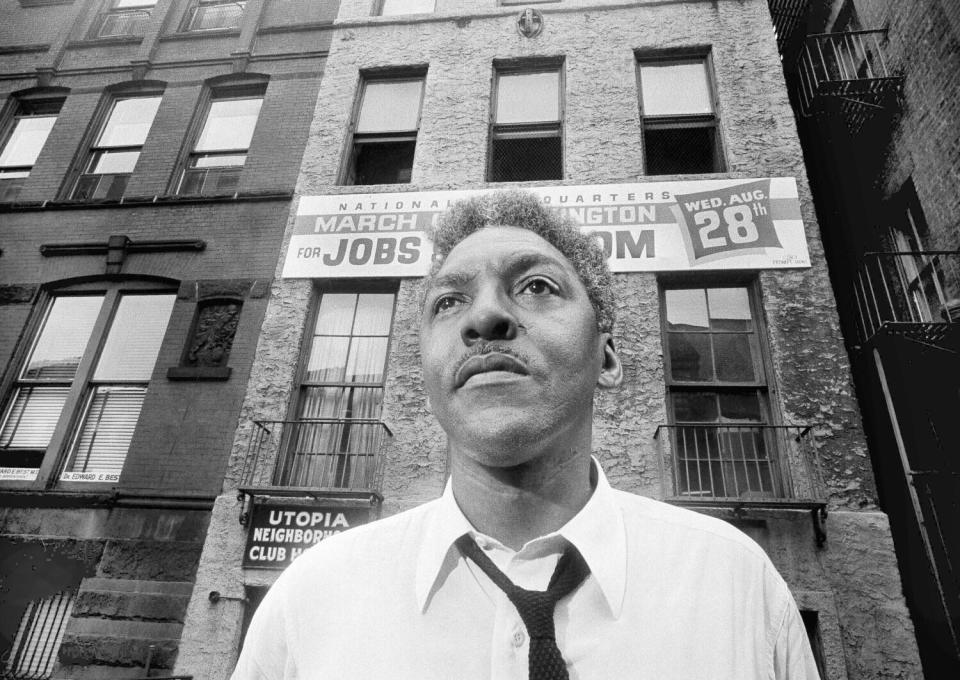
1965: Ernestine Eckstein joins other queer activists at a White House protest, holding a sign reading, "Denial of Equality of Opportunity is Immoral." Eckstein, a Black lesbian, is not well known today but was what one LGBTQ+ scholar called "a prophet of the movement."
Read more: America is again stuck in darkness. Queer people of color have always known the way out
1966: Transgender women and other queer patrons of Compton's Cafeteria in San Francisco's Tenderloin decide to fight back against police harassment. Others in the neighborhood — including people with the queer youth group Vanguard and at Glide Memorial United Methodist Church — also work to empower local queer residents.
1968: The heinous murder of Ramon Novarro, one of Hollywood's great romantic idols, revealed he was gay and shined a light on the secrecy and struggles of gay actors in Hollywood.
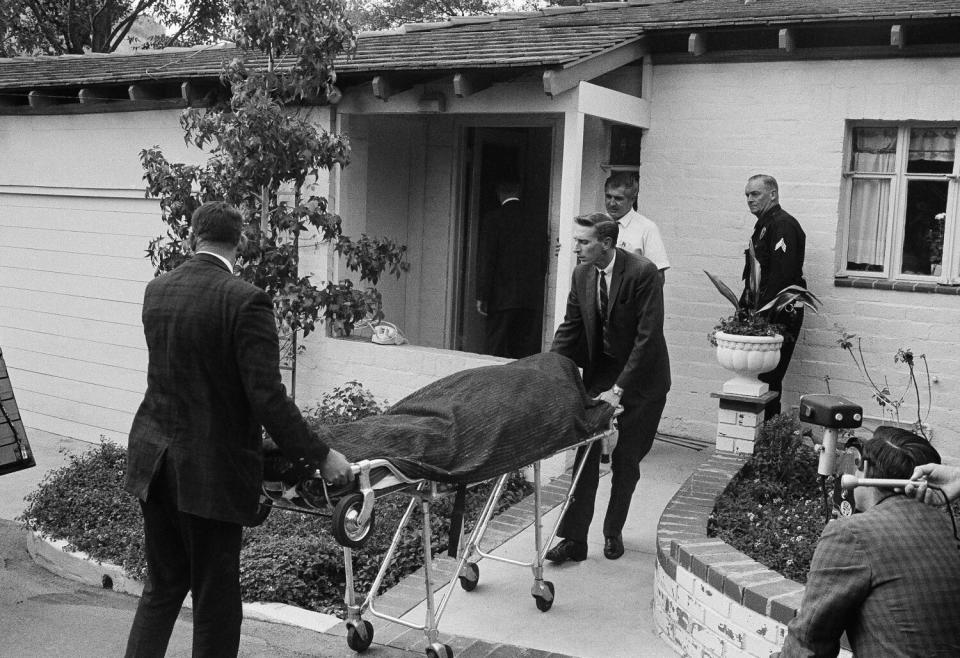
1969: Queer patrons of the Stonewall Inn in New York draw national attention for similarly resisting police harassment, a seminal moment in the LGBTQ+ rights struggle.
1970: The first gay pride marches are held in cities across the country.
1973: The American Psychiatric Assn. issues a resolution removing homosexuality as a mental illness or sickness from its diagnostic manual, changing a position it had held for nearly a century.
1977: Harvey Milk is elected to the San Francisco Board of Supervisors, becoming one of the first gay elected officials in the U.S. In the face of Anita Bryant's successful campaign to repeal a gay rights ordinance in Florida, San Francisco hosts a Pride event that draws hundreds of thousands of people.
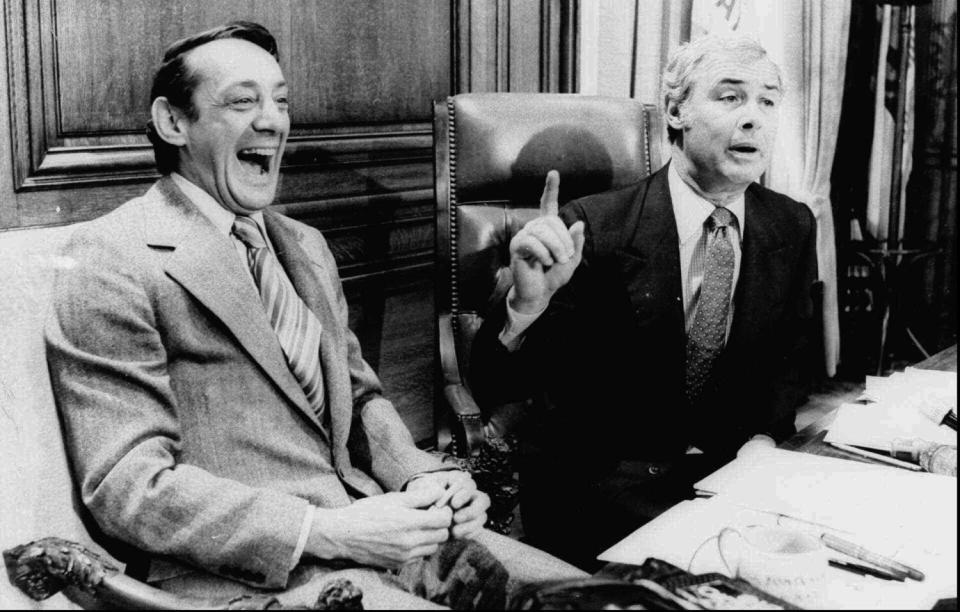
1978: The Briggs Initiative, a statewide proposition in California that would have barred gay and lesbian people from working as teachers in the state's public schools, fails. Supervisor Milk is assassinated, along with Mayor George Moscone, at San Francisco City Hall.
1981: Acquired Immune Deficiency Syndrome, or AIDS, is first recognized. Registered nurse Bobbi Campbell takes pictures of his Kaposi sarcoma lesions and posts them in the heart of San Francisco's Castro District.
Read more: We must remember the heroes of the AIDS epidemic, not just the trauma
1982: The first Gay Games are held in San Francisco, founded by Olympic athlete and activist Dr. Tom Waddell, heralding more out queer participation in sports.
1985: The Times runs a groundbreaking poll on people's perceptions of lesbian and gay people, in which 72% of respondents said same-sex relationships were always or almost always wrong.
1987: The AIDS Coalition to Unleash Power, or ACT UP, is founded to help fight AIDS through defiance, direct action, research and advocacy in the face of an inadequate government response.
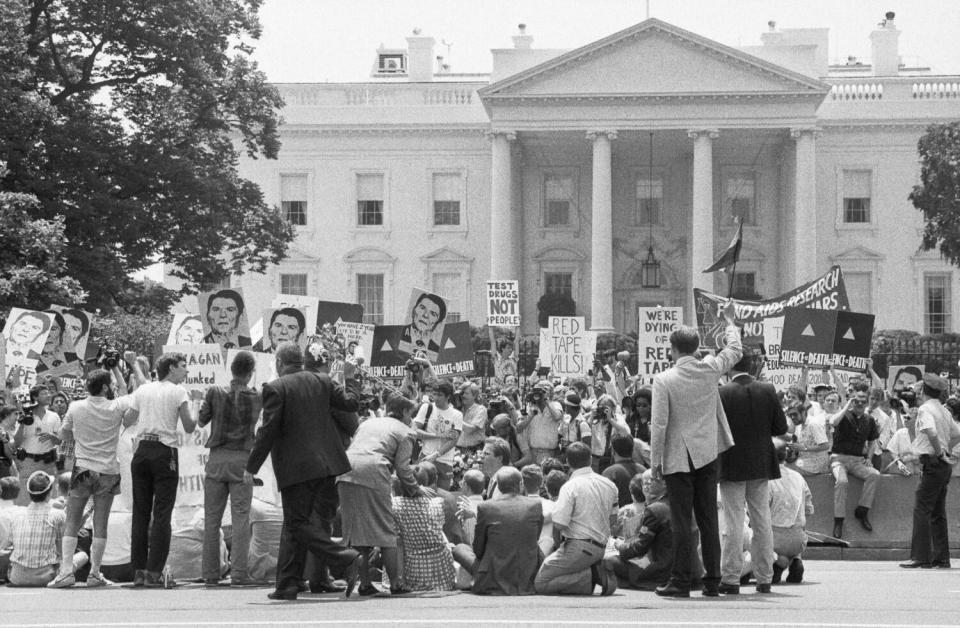
1993: Congress passes "Don't Ask, Don't Tell," a policy that allows gay and lesbian people to serve in the U.S. military as long as they keep their sexual orientation private.
2000: Vermont becomes the first U.S. state to legalize same-sex civil unions.
2003: The U.S. Supreme Court rules in Lawrence vs. Texas that laws criminalizing private, consensual sex between adults are unconstitutional.
2004: Massachusetts becomes the first U.S. state to legalize same-sex marriage.
2010: Congress repeals "Don't Ask, Don't Tell," allowing gay and lesbian people to serve openly in the U.S. military.
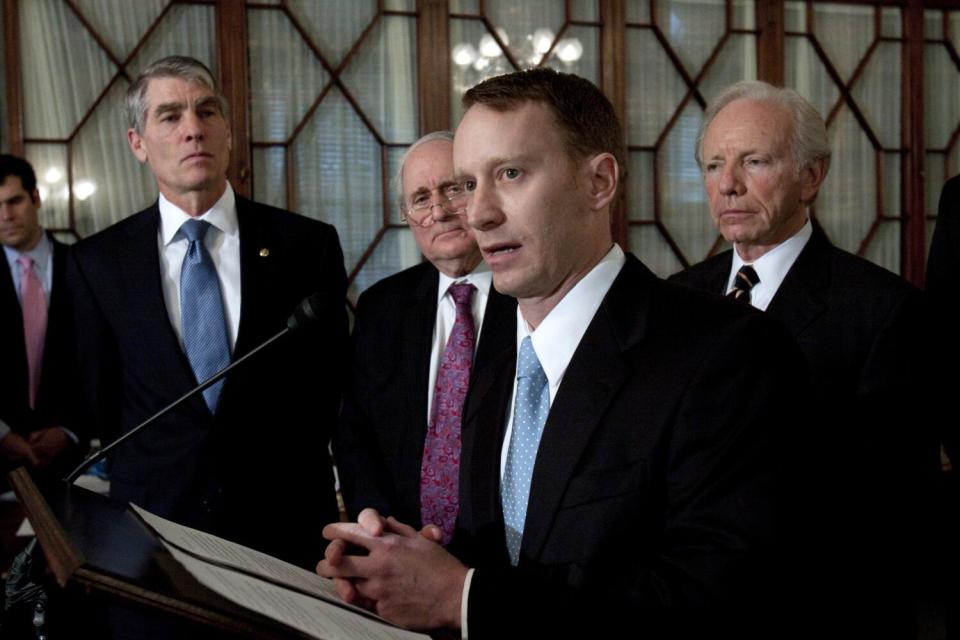
2012: Then-Vice President Joe Biden backs same-sex marriage before President Obama or his administration did so, citing the influence of the television sitcom "Will & Grace." The American Psychiatric Assn. says it will remove "gender identity disorder" from its forthcoming diagnostic manual, helping to dispel the stigma that transgender people are mentally ill. The manual instead lists "gender dysphoria," a condition where patients experience emotional distress related to their gender.

2015: The U.S. Supreme Court rules in Obergefell vs. Hodges that same-sex couples have a fundamental right to marry.
2017: Paul Mpagi Sepuya produces “Darkroom Mirror _2070386,” part of a long history of queer photographers turning the lens on themselves and their communities.
2020: The U.S. Supreme Court rules in Bostock vs. Clayton County that the Civil Rights Act of 1964 protects LGBTQ+ people from workplace discrimination nationwide.
2023: Gallup surveys of more than 12,000 Americans find that more than 1 in 5 Gen Z adults, ages 18 to 26, and 1 in 10 millennials, ages 27 to 42, identify as LGBTQ+.
2024: Anti-LGBTQ+ legislation, and especially anti-transgender legislation, is introduced across the nation as a backlash to decades of progress for the LGBTQ+ community. A new Times poll finds widespread support for LGBTQ+ people, but slightly less for transgender and nonbinary people.
This story originally appeared in Los Angeles Times.
